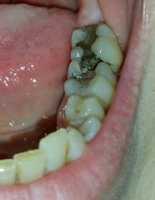Genetic Studies Can Help Determine How Low LDL Should Go With Treatment
Gene Linked to Colon Cancer in Younger Patients Identified
DNA Copy Number Variants Linked to Increased Risk of Depression
RNA Genetic Testing Improves Analysis of Hereditary Cancer Genes
 Rachid Karam, PhD
Director, Ambry Translational Genomics Lab
Ambry Genetics
MedicalResearch.com: What is the background for this study?
Response: DNA genetic testing (DGT) for hereditary cancer genes is now a well accepted clinical practice; however, the interpretation of DNA variation remains a challenge to laboratories and medical providers.
RNA genetic testing (RGT) as a supplement to DGT is a means to clarify the clinical actionability of variants in hereditary cancer genes, improving our ability to accurately apply known strategies for cancer risk reduction.
(more…)
Rachid Karam, PhD
Director, Ambry Translational Genomics Lab
Ambry Genetics
MedicalResearch.com: What is the background for this study?
Response: DNA genetic testing (DGT) for hereditary cancer genes is now a well accepted clinical practice; however, the interpretation of DNA variation remains a challenge to laboratories and medical providers.
RNA genetic testing (RGT) as a supplement to DGT is a means to clarify the clinical actionability of variants in hereditary cancer genes, improving our ability to accurately apply known strategies for cancer risk reduction.
(more…)Bacteria in Intestinal Microbiome Freely Transfer Genes To Each Other
Epilepsy: Genetic Testing Should Include Parental Sampling
Genes Linked to Alcohol Use Disorder Identified
Insulin Resistance Characterizes a Subset of Schizophrenia Patients
Pathogenic RET Variants Occur at Higher Prevalence Than Previously Recognized
Genetic Mutation May Predict Outcomes of Prostate Cancer Treated With Androgen-Deprivation Therapy or Abiraterone
Genetics Could Explain Smokers’ Preference for Menthol Cigarettes
Mutations Linked to Scarring Hair Loss in African American Women Identified
Genes Help Determine Whether You Are Shaped Like an Apple or Pear
12 Genetic Loci Associated with Human Healthspan
Link Between Apolipoprotein E and Brain Hemorrhage Varies by Ethnicity
Polygenic Risk Scores Linked to Intelligence, ADHD and Brain Findings
Tinnitus: Study of Adoptees Suggests Genetic Predisposition
Paternal Grandfather’s Access to Food Predicts All-Cause and Cancer Mortality in Grandsons
Some Anti-Tumor Drugs May Promote Delayed Aggressive Cancers
MedicalResearch.comInterview with:
Alexandra Avgustinova PhD
Postdoctoral fellow at the Institute for Research in Biomedicine (IRBBarcelona)

MedicalResearch.com: What is the background for this study?
Response: The basis of this study was the strong association between closed chromatin and high mutation rate reported several years ago. We were surprised to see this observation being widely interpreted as a causal association, as it was largely based on correlative studies without experimental backing. Therefore we decided to experimentally test for the first time whether indeed altering chromatin opening would affect mutation rate or distribution within tumours.
MedicalResearch.com: What are the main findings?
Response: We found that, despite significantly increasing chromatin opening, loss of the histone methyltransferase G9a did not have any major influence on the mutation rate or distribution within cutaneous squamous cell carcinomas. These results demonstrate that chromatin opening does not play a major role in determining the mutation rate within tumours, and we speculate that other, confounded factors (e.g. replication timing or H3K36me3 levels) are likely causal for the observed association. This, however, remains to be proven experimentally.
Another major conclusion of our study was that although tumour initiation was delayed and tumour burden decreased in the absence of G9a, the tumours that did develop were highly aggressive due to selection for more aggressive tumour clones. This finding was contrary to many published reports suggesting G9a as a good candidate for clinical targeting, highlighting the need for long-term follow-up in pre-clinical studies.
(more…)Using of Big Data to Estimate Prevalence of Defective DNA Repair Variants in the US
MedicalResearch.com Interview with:

Kenneth H. Kraemer,M.D.
Chief DNA Repair Section
Laboratory of Cancer Biology and Genetics, Center for Cancer Research
National Cancer Institute
MedicalResearch.com: What is the background for this study?
Response: At the National Cancer Institute, we have been examining patients with xeroderma pigmentosum (XP), a rare, recessively inherited, cancer-prone disease for many years. Therefore, with the increasing use of exome sequencing, we decided to see how closely"big data" corresponded with our clinical observations.
(more…)
Genome Analysis Can Overestimate Incidence of Chronic Kidney Disease
Eczema Determined by Genetics or Environment?
What we see it that eczema is determined by genetics and with no know external factors causing or deteriorating the...
Genetic Variant is Risk Factor for Two Different Types of Interstitial Lung Disease
Genetic Locus Linked to Migraine Risk in African American Children
 Hakon Hakonarson, MD, PhD
Corresponding Author
Xiao Chang, PhD
Lead Author
The Center for Applied Genomics
Children’s Hospital Philadelphia
Philadelphia, Pennsylvania
MedicalResearch.com: What is the background for this study? What are the main findings?
Response: Migraine is a genetic disorder characterized by recurrent and intense headaches often accompanied by visual disturbances. Genome-wide association studies (GWASs) are a powerful hypothesis-free tool for investigating the genetic architecture of human disease. Currently, multiple GWASs have been conducted on European adults with migraine that have successfully identified several migraine susceptibility genes involved in neuronal and vascular functions.
Considering the prevalence of migraines varies across ethnicities, the genetic risk factors may be different in patients of African ancestries and European ancestries. In addition, if migraine presents at an early age (childhood), it may reflect elevated biological predisposition from genetic factors or increased susceptibility to environmental risk factors.
We performed the first GWAS to investigate the susceptibility genes associated with migraine in African-American children. The main out come was that common variants at the 5q33.1 locus in the human genome are associated with migraine risk in African-American children. The genetic underpinnings at this locus responsible for this finding are less relevant in patients of European ancestry. (more…)
Hakon Hakonarson, MD, PhD
Corresponding Author
Xiao Chang, PhD
Lead Author
The Center for Applied Genomics
Children’s Hospital Philadelphia
Philadelphia, Pennsylvania
MedicalResearch.com: What is the background for this study? What are the main findings?
Response: Migraine is a genetic disorder characterized by recurrent and intense headaches often accompanied by visual disturbances. Genome-wide association studies (GWASs) are a powerful hypothesis-free tool for investigating the genetic architecture of human disease. Currently, multiple GWASs have been conducted on European adults with migraine that have successfully identified several migraine susceptibility genes involved in neuronal and vascular functions.
Considering the prevalence of migraines varies across ethnicities, the genetic risk factors may be different in patients of African ancestries and European ancestries. In addition, if migraine presents at an early age (childhood), it may reflect elevated biological predisposition from genetic factors or increased susceptibility to environmental risk factors.
We performed the first GWAS to investigate the susceptibility genes associated with migraine in African-American children. The main out come was that common variants at the 5q33.1 locus in the human genome are associated with migraine risk in African-American children. The genetic underpinnings at this locus responsible for this finding are less relevant in patients of European ancestry. (more…)Strong Genetic Component to Psychotic-Like Experiences with Cannabis
 Dr. Nicole Karcher, PhD
Post-doctoral scholar with the NIMH Training in Clinical Sciences fellowship
Department of Psychiatry
Washington University School of Medicine
MedicalResearch.com: What is the background for this study? What are the main findings?
Response: For over fifteen years, researchers have debated the role that cannabis use plays in the development of both psychotic disorders as well as subthreshold psychotic symptoms, such as psychotic-like experiences (PLEs). There is still a lack of consensus regarding the nature of the association between cannabis use and psychosis risk, with some research finding evidence for genetic overlap, while other research finds evidence for potentially causal pathways.
The current study examined data from twins and siblings from two different samples, the U.S.-based Human Connectome Project and the Australian Twin Registry, with a total of 4,674 participants. Overall, psychotic-like experiences were associated with three separate cannabis use variables [frequent (≥100 times) use, a Cannabis Use Disorder diagnosis, and current cannabis use]. Furthermore, the current research found evidence for both shared genetic and individual-specific contributions to the association between PLEs and these three cannabis use variables. More specifically, while the association between cannabis use and psychotic-like experiences was largely attributable to shared genetic factors, cannabis users were more likely to endorse PLEs in comparison to the relative who used cannabis less. (more…)
Dr. Nicole Karcher, PhD
Post-doctoral scholar with the NIMH Training in Clinical Sciences fellowship
Department of Psychiatry
Washington University School of Medicine
MedicalResearch.com: What is the background for this study? What are the main findings?
Response: For over fifteen years, researchers have debated the role that cannabis use plays in the development of both psychotic disorders as well as subthreshold psychotic symptoms, such as psychotic-like experiences (PLEs). There is still a lack of consensus regarding the nature of the association between cannabis use and psychosis risk, with some research finding evidence for genetic overlap, while other research finds evidence for potentially causal pathways.
The current study examined data from twins and siblings from two different samples, the U.S.-based Human Connectome Project and the Australian Twin Registry, with a total of 4,674 participants. Overall, psychotic-like experiences were associated with three separate cannabis use variables [frequent (≥100 times) use, a Cannabis Use Disorder diagnosis, and current cannabis use]. Furthermore, the current research found evidence for both shared genetic and individual-specific contributions to the association between PLEs and these three cannabis use variables. More specifically, while the association between cannabis use and psychotic-like experiences was largely attributable to shared genetic factors, cannabis users were more likely to endorse PLEs in comparison to the relative who used cannabis less. (more…)Paternal Smoking Can Affect Multiple Generations of Descendants
 Pradeep G. Bhide, Ph.D.
Professor | Jim and Betty Ann Rodgers Eminent Scholar Chair of Developmental Neuroscience
Director, Center for Brain Repair
Department of Biomedical Sciences
Florida State University College of Medicine
Tallahassee, FL
MedicalResearch.com: What is the background for this study? What are the main findings?
Response: Until now, much attention had been focused on the adverse effects of cigarette smoking by pregnant women on their children’s cognitive development. Some reports suggested that cigarette smoking during pregnancy can produce harmful effects in multiple generations of descendants (transgenerational effects).
Not much had been known about the effects of paternal smoking, although more men smoke cigarettes than women. Our study shows that paternal nicotine exposure can be deleterious to the offspring in multiple generations. That is, cognitive function may be compromised in children and grandchildren of a nicotine-exposed male. Of course, our study was done in mice and not men. However, since studies done in mice on maternal nicotine exposure produced results consistent with studies done in women and children, we believe that he findings from our present study likely can be extrapolated to humans. (more…)
Pradeep G. Bhide, Ph.D.
Professor | Jim and Betty Ann Rodgers Eminent Scholar Chair of Developmental Neuroscience
Director, Center for Brain Repair
Department of Biomedical Sciences
Florida State University College of Medicine
Tallahassee, FL
MedicalResearch.com: What is the background for this study? What are the main findings?
Response: Until now, much attention had been focused on the adverse effects of cigarette smoking by pregnant women on their children’s cognitive development. Some reports suggested that cigarette smoking during pregnancy can produce harmful effects in multiple generations of descendants (transgenerational effects).
Not much had been known about the effects of paternal smoking, although more men smoke cigarettes than women. Our study shows that paternal nicotine exposure can be deleterious to the offspring in multiple generations. That is, cognitive function may be compromised in children and grandchildren of a nicotine-exposed male. Of course, our study was done in mice and not men. However, since studies done in mice on maternal nicotine exposure produced results consistent with studies done in women and children, we believe that he findings from our present study likely can be extrapolated to humans. (more…)Breast Cancer: Gene Expression of Receptors on a Chip Can Enhance Precision Diagnosis
 Univ.- Prof. Dr. Wolfgang Schreiner
Section Biosimulation and Bioinformatics
Center for Medical Statistics, Informatics, and Intelligent Systems
Medical University of Vienna
General Hospital
WIEN / AUSTRIA
MedicalResearch.com: What is the background for this study? What are the main findings?
Response: The choice of correct individualized therapy for breast cancer depends on correct diagnosis: receptors for estrogen, progesterone and HER2 are determined routinely. However 5-10% of these routine diagnostics are inaccurate and may entail suboptimal therapy.
We have paved the way for additional diagnostics from gene expression data so as to increase precision of diagnostics. (more…)
Univ.- Prof. Dr. Wolfgang Schreiner
Section Biosimulation and Bioinformatics
Center for Medical Statistics, Informatics, and Intelligent Systems
Medical University of Vienna
General Hospital
WIEN / AUSTRIA
MedicalResearch.com: What is the background for this study? What are the main findings?
Response: The choice of correct individualized therapy for breast cancer depends on correct diagnosis: receptors for estrogen, progesterone and HER2 are determined routinely. However 5-10% of these routine diagnostics are inaccurate and may entail suboptimal therapy.
We have paved the way for additional diagnostics from gene expression data so as to increase precision of diagnostics. (more…)Gene Variants Can Alter Glucose Absorption and Cardiometabolic Risks
Genetic Risk Score Improves Ability To Predict Diabetics at Risk of Coronary Disease
MedicalResearch.com Interview with: [caption id="attachment_44905" align="alignleft" width="200"] Dr. Morieri[/caption] Mario Luca Morieri MD Section on Genetics and Epidemiology, Research Division, Joslin Diabetes Center Department...
























